The era of technology 4.0 is changing rapidly, requiring us to equip children with appropriate knowledge and skills to be able to adapt and develop.
 |
| The digital age opens up many opportunities for children to express their ideas through art, programming or creative projects. (Illustration: Vu Minh Hien) |
The growing advancement of artificial intelligence (AI) poses new challenges for education . So what should we teach students so that they can not only keep up with but also outperform AI?
An expert once said that humans have lost the "memorization" war against computers, but in the "understanding" war, we still have many opportunities to win. In understanding, the problem is not only what to learn but also how to learn. For knowledge workers, our competitive advantage over ChatGPT is the ability to understand deeply, the ability to analyze logically, self-criticize, and evaluate when we do not understand or misunderstand to motivate ourselves to learn more.
Many years ago, in an interview with The World and Vietnam Newspaper, Professor Nguyen Lan Dung asked, let's look at what people in the world are teaching children and why Vietnamese children are not taught in a gentle but very effective way like them?
“Why do we force students to memorize and test on details that, in this era of highly developed information technology, can be obtained with just a click of a mouse? Why do we force all students to learn derivatives, differentials, integrals, trigonometry… when only a small part of them will be needed after entering adulthood? Why do we have to learn the structure of one animal after another, this industry, that class, this family, that genus… and then not remember anything at all?”, Professor, People's Teacher, Nguyen Lan Dung wondered.
Indeed, in the digital age, teaching children is not just about the basics, but also requires flexibility and creativity. Technology has changed the way children receive information, interact and develop skills. Therefore, we need to carefully consider what should be taught to the younger generation.
First, children need to be equipped with basic digital skills. Using computers, smartphones and other technological devices has become an essential part of life. Learning how to use software, online tools, and manage information are important skills that help children become more confident in their future learning and working environments.
| "Teaching children in the digital age is both a challenge and an opportunity. We need to prepare children not only with knowledge but also with life skills, thinking ability and creativity. By combining these elements, we can help children develop comprehensively, ready to enter a world full of potential and challenges." |
In today’s information-saturated world, critical thinking skills are essential. Teach children how to analyze and evaluate information sources so they can develop the ability to make their own decisions. Teach them to ask questions and not be afraid to seek out different perspectives to become informed and responsible citizens.
Although technology has many benefits, face-to-face interaction is still important. Encourage the development of social skills such as communication and teamwork. Extracurricular activities, group games and discussions will help children learn how to build relationships and work effectively with others.
The digital world opens up many opportunities for children to express their ideas through art, programming or creative projects. Providing opportunities for children to participate in artistic and scientific activities helps them develop innovative thinking, thereby creating unique solutions to practical problems.
Especially in the digital age, online safety education is extremely important. Children need to be guided on how to protect personal information, identify risks when participating in social networks and how to behave in the online environment. This not only helps children avoid dangers but also creates a solid foundation for personal development.
| "Teaching students to compete with AI is not only about equipping them with the necessary knowledge and skills, but also nurturing qualities such as creativity, critical thinking... By equipping them with important knowledge and skills, we help them become global citizens, confident and ready to face the challenges that AI brings." |
It can be said that teaching children in the digital age is full of challenges but also opportunities. We need to prepare children not only with knowledge but also with life skills, thinking ability and creativity. By combining these elements, we can help children develop comprehensively, ready to enter a world full of potential and challenges.
Furthermore, in a changing world, for children to compete with AI in the future, education needs to focus on a number of important skills and areas. AI has the ability to process and analyze information, but creativity is still an area where humans have an advantage.
Learning to think creatively, develop new ideas and create original products is important. Children need to develop critical thinking skills to analyze information, evaluate and make decisions, as well as learn to ask questions, analyze arguments and identify information.
The ability to solve complex problems is one of the most important skills. Teach your children to approach problems from different angles and find creative solutions. While AI can process data, it cannot replace empathy and social skills. Developing the ability to communicate, work in teams and manage emotions will help children interact better with others.
In other words, children need to understand technology and AI, not just to use it, but also to develop and improve it. Learning programming, data analysis and related fields will help children grasp how AI works.
The world of technology is changing rapidly, so lifelong learning is important. Children should be encouraged to develop the habit of self-learning and constantly updating their knowledge; understanding the impacts of technology and AI on society. Learning about ethics in technology will help them make informed and responsible decisions in the future.
Teaching students to compete with AI is not only about equipping them with the necessary knowledge and skills, but also about nurturing qualities such as creativity, critical thinking, etc. By equipping them with important knowledge and skills, they will become global citizens, confident and ready to face the challenges that AI brings. Education is now not only about imparting knowledge but also about preparing children with the necessary tools to succeed in a constantly changing world.
Source








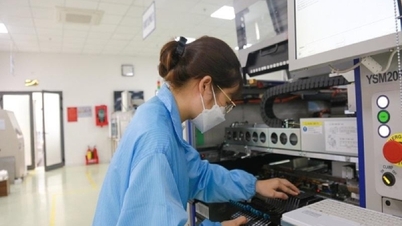

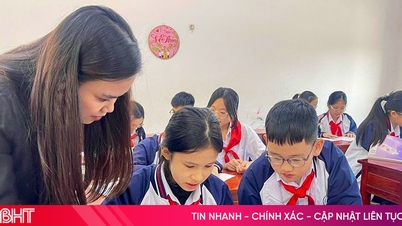



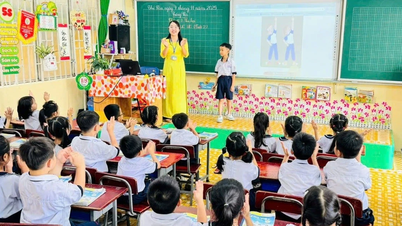






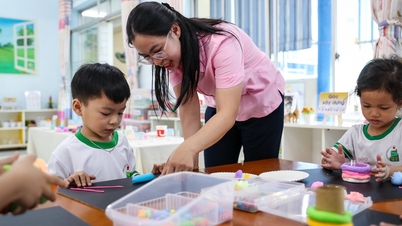




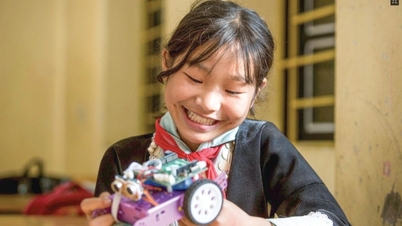






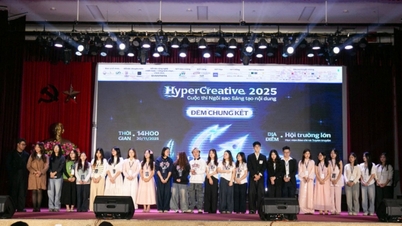





![[Photo] Parade to celebrate the 50th anniversary of Laos' National Day](/_next/image?url=https%3A%2F%2Fvphoto.vietnam.vn%2Fthumb%2F1200x675%2Fvietnam%2Fresource%2FIMAGE%2F2025%2F12%2F02%2F1764691918289_ndo_br_0-jpg.webp&w=3840&q=75)
























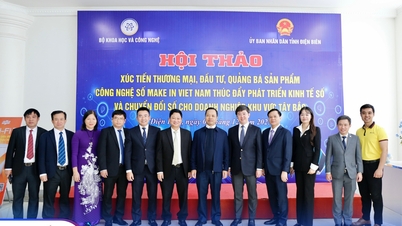
















































Comment (0)